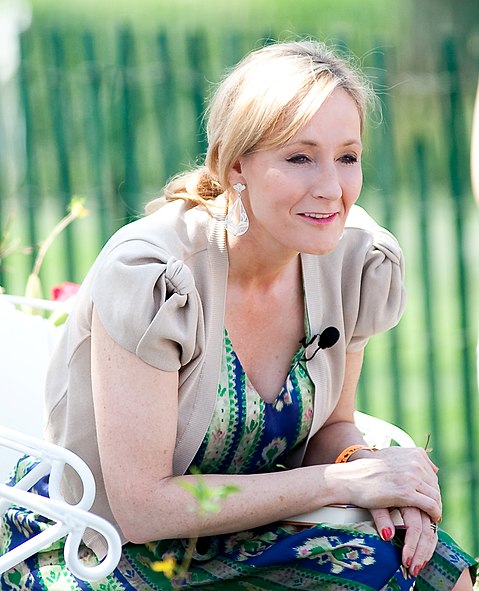 |
| Photo - Daniel Olgren |
But if that small display of opinion-holding wasn't enough, Jo-Ro has stirred up a veritable fan-base shit-storm this week, by admitting that Harry Potter characters Ron and Hermione shouldn't have been married after all.
Talking to Emma Watson in an interview for Wonderland (an interview I could only guess was fraught with awkwardness) she admitted that the pair ended up together "for reasons that have very little to do with literature and far more to do with me clinging to the plot as I first imagined it."
The interview led many journalists to realise that the word 'Hermione' doesn't actually come up on spell-check as a real word, and many die-hard fans to cry into their first editions.
More importantly, the story brings up many debates of authorship - mainly the degree to which an author has the sole property of the characters or story that they created. Young adult novelist John Green is often quoted on the subject, saying of his books:
This idea was explored on it's head in his most recent novel The Fault in our Stars, in which literary novelist and drunken bastard Peter Van Houten is followed to Amsterdam by a fan of his novel intent on finding out what happens to the characters in his book after it finishes. Being the drunken bastard he is, Van Houten makes a point of reminding her that the characters don't exist beyond the end of the book.“They belong to their readers now, which is a great thing–because the books are more powerful in the hands of my readers than they could ever be in my hands.”
Rowling-gate also brings up a point of realism. Her regrets bring to light questions of whether or not the characters would have been compatible at all, going as far as to say that the pair would have likely needed marriage counselling, (an idea that might provoke a scoff from people with a distant relationship with fiction.) Is realism this important however? With the fan-base for the series being the record breaking size that it is, Rowling foresaw " the rage and fury it might cause some fans" - opting nonetheless to be honest about her feelings.
Personally I can sympathise with Rowling. As a person who has spent hours of my life putting to paper events, people and worlds that don't exist, I really do get the idea of writing things as I first imagined them. Nothing compares to knowing a character so well that you can conjure up facts about them with a convincing confidence.
However, with the considerably less amount of experience I have in the craft, I don't know where I stand in terms of letting what I imagine and what would really happen see eye to eye. Either way, it's evident that realism is hugely important: even if you write about wizards for a living.
-Lewis

No comments:
Post a Comment